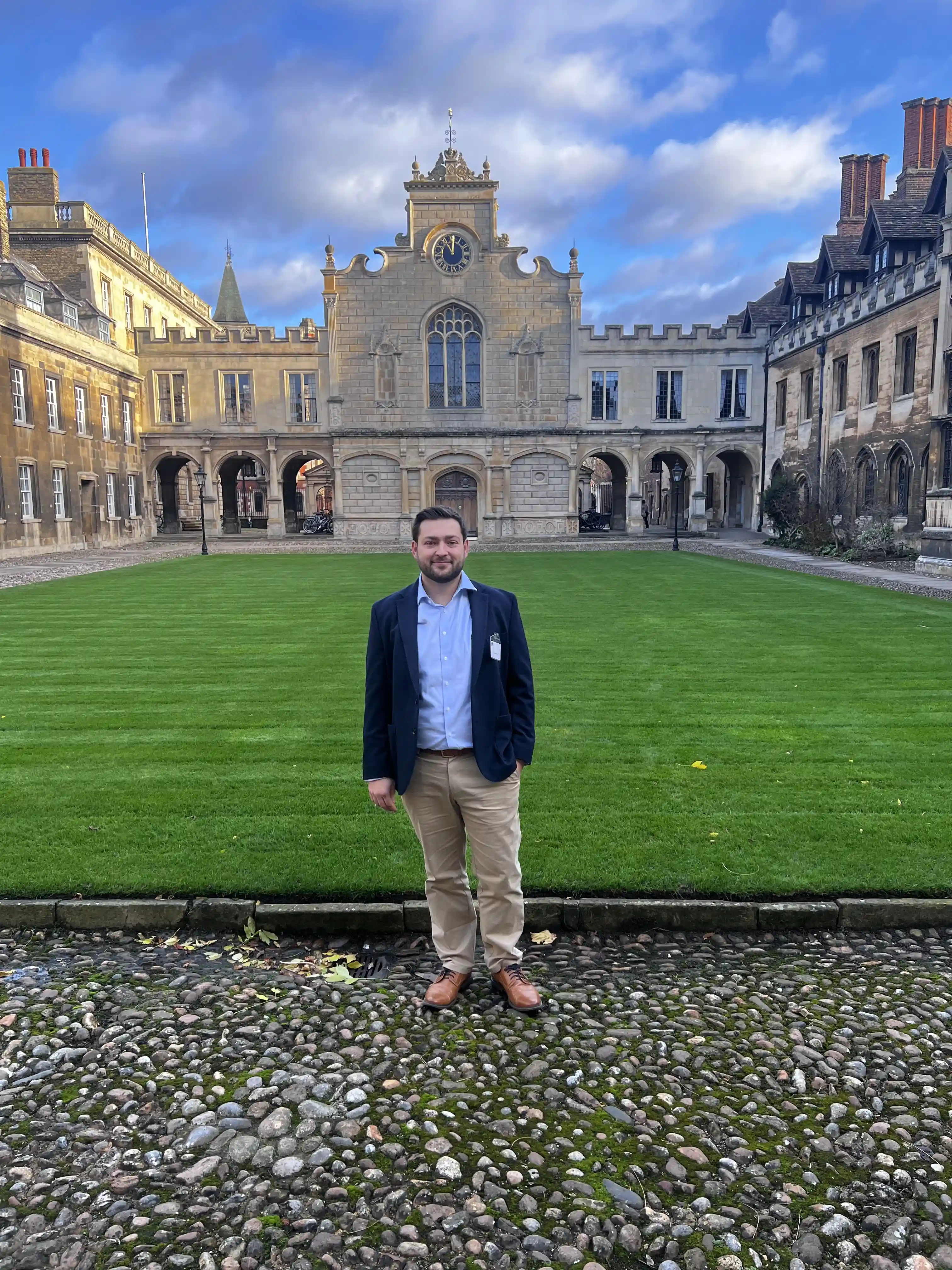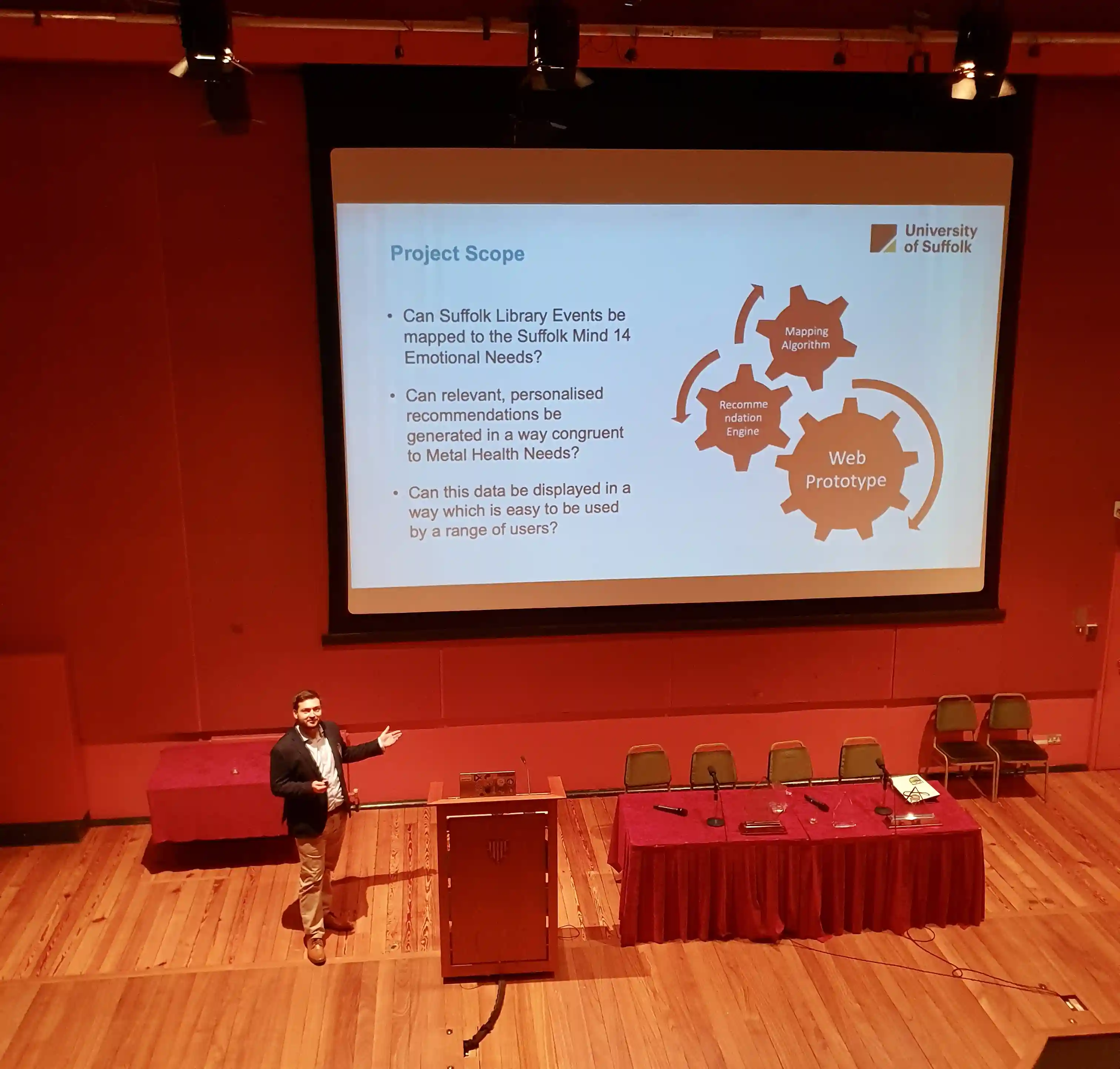AI-2024: Presenting My Work on Mental Health Assistance Systems
Published on 5th January 2025 by Nathan Dickson
Last month, I attended the AI-2024 Forty-Fourth SGAI International Conference on Artificial Intelligence, held at the historic Peterhouse College in Cambridge. It was a great opportunity to learn, network, and share ideas with some of the brightest minds in artificial intelligence. More personally, it was the moment I presented my paper, "Classification and Recommendation of Mental Health Assistance Events Using an RNN-LSTM, Fast-And-Frugal Trees, and Weighted Sum System," to an audience of esteemed peers.
Arriving in Cambridge
The conference venue, Peterhouse College, exuded charm and history. Walking through its cobbled pathways and ancient halls was a humbling experience. The juxtaposition of cutting-edge AI discussions within such a timeless setting was surreal.
The first day of the conference was dedicated to tutorials and workshops, and I made it a point to attend one on Large Language Models and their Ethical Implications. It was fascinating to see how AI can be both a tool for immense progress and a challenge to our existing ethical frameworks. This theme resonated deeply with me, as my work on mental health assistance systems aims to bridge technology with human-centric care.


Presenting My Paper
The third day was the highlight of my trip as I was able to present my paper on a hybrid approach to classify and recommend mental health assistance events using:
- RNN-LSTM for classification of Suffolk Libary Events.
- Fast-And-Frugal Trees (FFTs) for interpretable and rapid decision-making.
- Weighted Sum Systems (WSS) for integrating various inputs into actionable recommendations.
The presentation room was filled with researchers, practitioners, and students eager to learn about advancements in AI applications. I began by discussing the growing mental health crisis and AI's role in making assistance more accessible and effective. The audience showed genuine interest in how the FFT and WSS components ensured transparency and user trust—two aspects often overlooked in AI systems.
Engaging with the AI Community
After my presentation, the Q&A session turned into a lively discussion. Questions ranged from the scalability of my model to the ethical considerations of deploying such systems in real-world settings. One attendee shared insights on using similar techniques in healthcare diagnostics, which gave me ideas for future collaborations.
In the evening, the conference organisers hosted a formal dinner at the college’s dining hall. It was a delightful experience, not just for the delicious food but also for the conversations with fellow attendees. Sharing stories with AI researchers from diverse fields—from natural language processing to robotics.
Key Takeaways from AI-2024
Beyond my presentation, the conference was a treasure trove of knowledge. Some key highlights included:
- Keynote Speeches:
- A brilliant talk on Ethical AI in Critical Applications that emphasised the need for transparency and fairness.
- Insights into Advances in Explainable AI, a field that aligns closely with the interpretability goals of my research.
- Technical Sessions:
- I particularly enjoyed sessions on Neural Networks in Healthcare and AI for Social Good, which provided fresh perspectives and potential avenues for future work.
- Networking Opportunities:
- Meeting researchers with shared interests in mental health applications of AI opened doors to potential collaborations and mentorship opportunities.
Reflections and Looking Ahead
Attending AI-2024 was a milestone in my professional journey. Presenting my research to a distinguished audience and receiving constructive feedback was validating and motivating. The experience reminded me of why I ventured into AI in the first place: to create technology that makes a tangible difference in people’s lives.
If you’re interested in learning more about my research or collaborating on projects at the intersection of AI and mental health, feel free to reach out. Let’s continue pushing the boundaries of what AI can achieve.